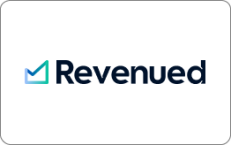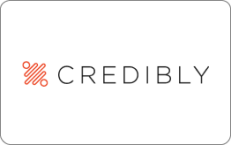The content is accurate at the time of publication and is subject to change.
Best Small Business Loans from our Partners
Posted on Mar 15, 2022
Updated on Mar 15, 2022
With so many financing options, a small business loan from an online lender is probably one of the easiest ways to get financing for your existing business or a startup. Online lenders have a simpler application process and may not require any collateral. They can offer loans to, among the others, businesses with poor credit and those who've been in business for a short time. Below, you can compare the best small business loans from our partners and learn how to qualify and find financing for your business needs.
Get To Know Small Business Loans
Small businesses have many financing options when they have established credit history, have been in business for more than one year and have revenue. Those who have bad credit or have recently established their business (or a startup), or yet to get their first revenue, these businesses may have hard time finding a loan for their business needs. However, there still are lenders who can offer them a financing.
Here are some important things you should know about small business loans:
1. Your personal credit score counts. Yes, when you apply for a small business loan, lenders will consider your personal credit score as well as your business credit score. This is especially true for startups and those who have low or bad business score. So, the higher your personal credit score, the higher your chances to qualify for a small business loan.
2. Collateral is not obligatory. If you cannot pay collateral, look for lenders that are ready to open you a line of credit without any collateral. However, in this case, the loan interest rate can be higher than average. But you can still get the loan you need and continue growing your business.
3. No annual revenue does not mean you won't qualify. There are lenders, and online lenders are among of them, that are ready to give you a chance even if your business hasn't made anything yet. Loan amounts will be rather small and terms are not as favorable as they could be, but still, you can get approved for a loan your small business needs.
4. Startups are welcome to apply. While it is true that most lenders will require at least one year in business to qualify for small business loans, there are few lenders who do not have this strict requirement. But be ready to see higher APRs and smaller loan amounts when you start shopping around for a loan.
5. Monthly payments are important. When you find good loan offers for your business, do not apply right away. Make sure you will be able to make loan payments comfortably each month. Some lenders require bimonthly payments or more often, so check this out to evaluate your ability to repay. Remember, you are now starting to build your business credit. You don't want to ruin it from the start, don't you?
our choice
- Business requirements: 1+ years in business, minimum of 20k/month deposits, and no Sole Proprietorships.
- No origination fees, maintenance fees, or draw fees.
- As your revenue increases, your spending limit increases.
- Access cash on demand with funds deposited straight into your bank account via the Flex Line.
- Approvals based on your business revenue and not personal credit.
- 24/7 access to business funding - via mobile app and Visa business card.
- Rated Excellent on Trustpilot with 800+ reviews.
our choice
our choice
- Find your best loan offer from competing lenders
- Loans up to $10M. Rates from 4.99%
- Checking rates won't affect your credit score
our choice
our choice
- Access up to $600,000 in funding
- Term: 3 to 24 months
- Factor rates as low as 1.11
- Get approved in as fast as 2 hours
- Prequalify online
- Get funding in as little as 24 hours from approval
- You don’t need a perfect credit score to get funding with Credibly
- Credibly offers a human touch to financing and a great customer experience
- Wide range of products to service the needs of small business owners
our choice
Types of Small Business Loans
There are several types of small business loans, and which is best for your business depends on several factors. Those factors include the business credit history, purpose of the loan, and amount the business wants to borrow. Here, you can weigh pros and cons of different types of loans for small businesses:
- Term loans: these are traditional loans with usually fixed monthly payments that are repaid over a set period of time. Short-term business loans can range from just three months to 18 months, and long-term business loans may be extended for up to ten years. Companies have the flexibility to use term loans for a variety of needs.
- SBA loans: Small Business Administration (SBA) loans are low-cost, government-backed loans. These loans are notorious for a long application process: it can take up to three months to get approved and receive the loan. However, SBA loans are a good option for businesses that haven't established credit histories.
- Business line of credit: it is a revolving loan, similar to a credit card. Companies can spend up to the maximum credit limit, repay it, then withdraw more money again. Here, businesses pay interest on the amount they withdraw, not on the entire loan. If you are not sure of the exact amount of money you'll need, a line of credit is a great option.
- Equipment loans: these loans are designed to help you pay for large equipment purchases, vehicles, or machinery. Usually, the purchased equipment is used as collateral for the loan.
- Invoice factoring and invoice financing: invoice factoring allows businesses to sell unpaid invoices to a lender and receive a percentage of the invoice value upfront. Invoice financing allows businesses to use unpaid invoices as collateral to get an advance on the amount they are owed.
- Microloans: when you need to borrow only a small amount, you can consider a microloan, which is usually up to $50,000. Many microloans require collateral, and they cannot be used to purchase property.
General Requirements for Small Business Loans
While requirements for small business loans can vary by lender, there are some general things lenders may review to approve you for a loan.
- Business and personal credit scores. If your business does not have any credit history yet, lenders will review your personal credit file. The better your score, the more competitive rate you are offered.
- Time in business. It is typically required to be in business from six months to two years to qualify for a loan.
- Business revenue. Often, lenders have minimum annual requirements. Some may even have minimum monthly revenue requirements. In addition, some lenders may want to see your profit and loss statements to determine if you can afford the loan.
In addition to these common requirements, some lenders may also want to review your debt-to-income (DTI) ratio, consider the debt-service coverage ratio (DSCR), require a collateral (in case of secured loans), consider the industry you operate in, and ask for your business plan.






